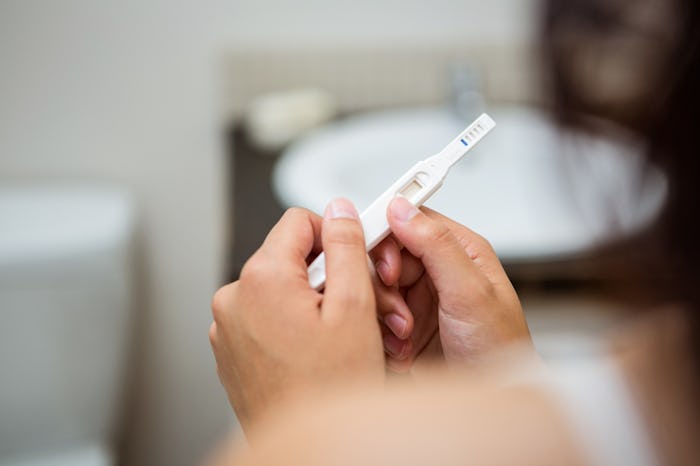Life

How Long Should I Wait Before Taking A Pregnancy Test?
When you’re trying to conceive, waiting any time at all for a pregnancy test can feel like an eternity. You just want to see that positive result and start preparing for a baby. However, when you take the test can have a significant impact on the results. So how long should you wait before taking a pregnancy test? The answer depends on several factors related to your hormone levels.
The timing of your missed period — or even the regularity of your cycle altogether — can affect your test results. In general, it pays to err on the side of patience and wait as long as possible. As the American Pregnancy Association explained, the urine tests that you can buy in the drugstore are testing for the presence of hormone human chorionic gonadotropin (hCG) in your system, which is produced during pregnancy by placental cells. It takes a little time for evidence of hCG to build up. Of course, waiting around for the perfect time to test is easier said than done when you are eager to welcome a new baby into your family.
Overall, the basics of biology cannot be hurried along. Here are some general timelines to help you determine the optimal time to pee on a stick. Hopefully, the results you want are just one plus sign away.
If Your Period Is Regular
Although you probably want to start testing the day Aunt Flo doesn't show, it might be a good idea to bide your time for a few days. As the Central Carolina OB-GYN explained, the hCG needs time to build up in your urine, so waiting a week after your missed period may yield more accurate results. If you test too soon, you might get a false negative because there just isn't enough hCG in your system yet. However, your timing may also depend on the sensitivity of your particular test. As the Office on Women's Health stated, some tests can even be taken before your missed period, although waiting a few days may produce more accurate results. In general, if your early tests come back negative, then you can try again in a week to see if those crucial hCG levels have reached testable levels.
If Your Period Is Irregular
Dealing with an irregular period can make timing conception extra tricky. As the McKinly Health Center of the University of Illinois explained, women with irregular periods may wait 36 days after the first day of their last period. If you would rather gauge the timing by your potential conception, then follow advice from the National Health Services and wait at least three weeks after your suspected implantation to test. Overall, the longer you wait, the greater your chances of getting an accurate positive result.